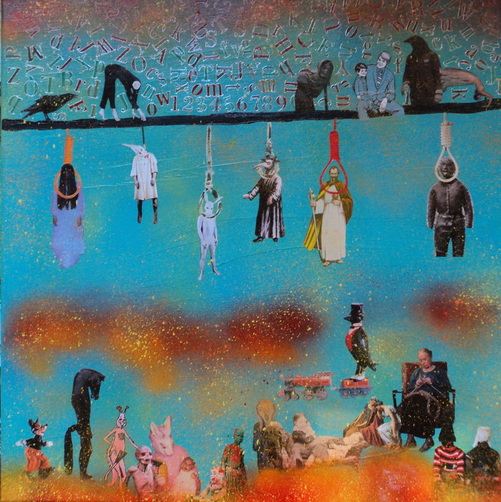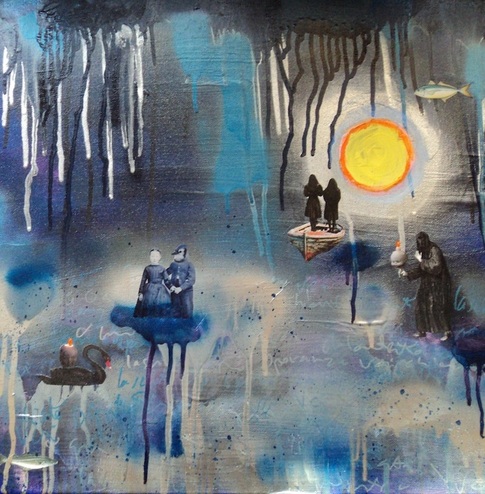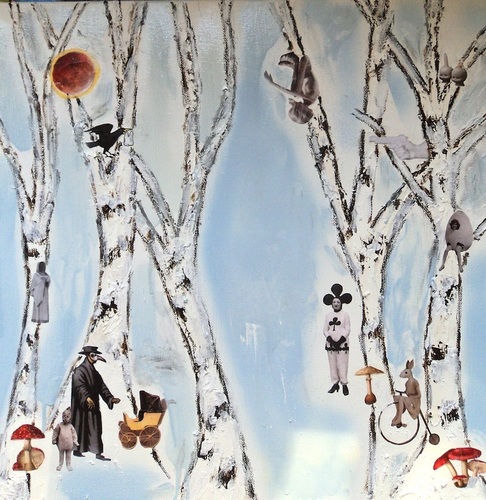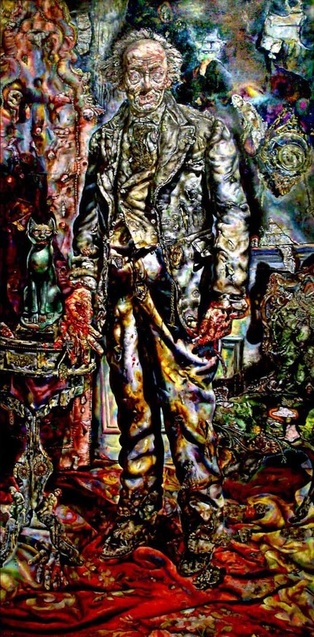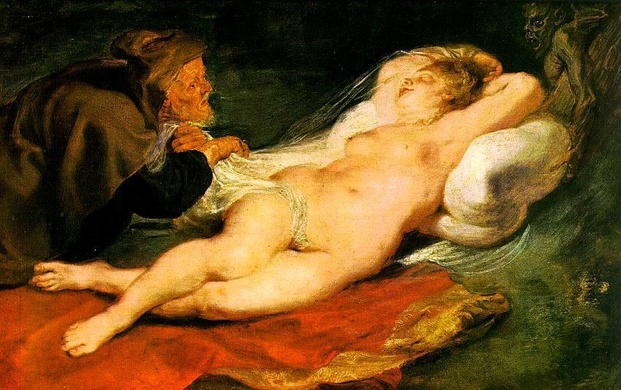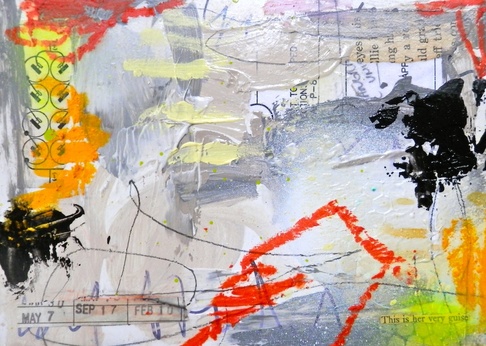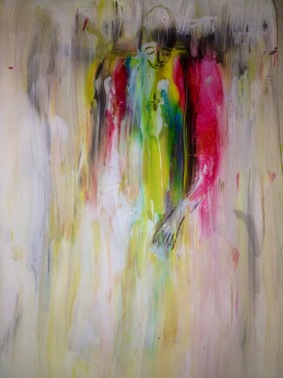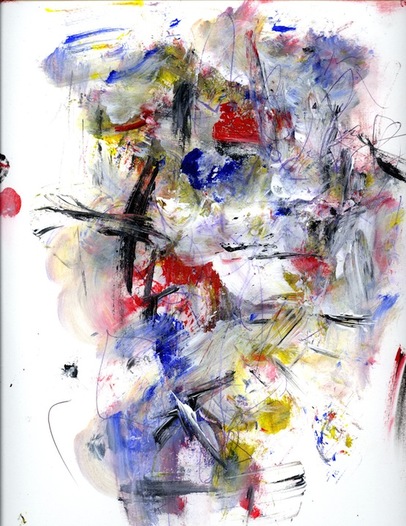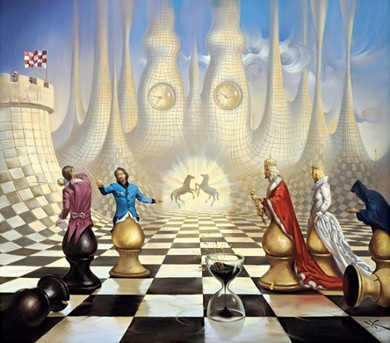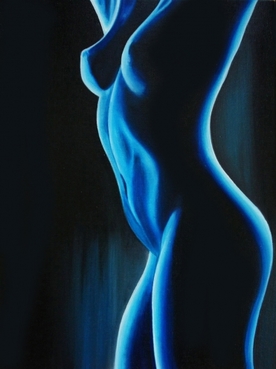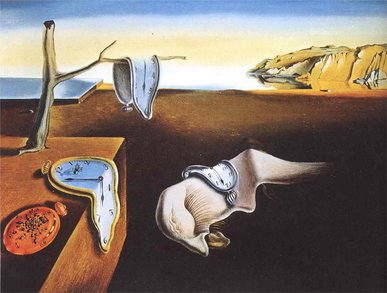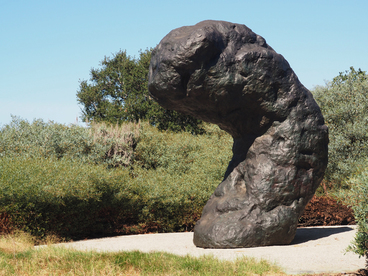|
These three Halloween paintings I made in 2013 were inspired by literature. The Hanging Garden is my macabre interpretation of the poem/lyrics, The Hanging Garden, by The Cure. It also ties in with a 1997 film that disturbed me, with the same title. Abandon All Hope Ye Who Enter Here is of course the entrance of Hell in Dante's Inferno. The Vagrant Ghosts of Winter is a line from a poem by Hart Crane.
Lorette
0 Comments
Angelica and the Hermit, by Peter Paul Rubens, 1628, is a scene from canto 8 of Orlando Furioso by Ludovico Arioso (1532). Read the English translation by William Stewart Rose by clicking here.
We are days away from beginning our very first 20 Poem Challenge!
The first prompt will appear Monday, November 2, and there will be one every weekday morning. We have an exciting lineup of images, specially curated to provide a range of visual experiences that will stretch your poetic imagination! It is always interesting to see how differently we see, or how many ways a piece of artwork can ignite perspective and possibilities. Some days, we will not be happy with our pieces. You don't have to spend sleepless nights wrestling with something that's just not working. That's taking time away from fresh inspiration, and from other necessary aspects of life. But don't skip the day's exercise either. Take a good look at the artwork, and spend some time jotting down words or ideas or questions that come to mind, and make a genuine effort to write a poem. You don't have to keep anything you don't like, but the process is what matters. You will be flexing new creative pathways! Many writers keep all of their drafts for reference. I discard the majority of my poetry, the inevitable stops and starts. What I find works for me is to highlight the lines or words or ideas or titles I like. I can transfer these to one of my "running lists" of tidbits with potential, or leave them in a sheaf of papers in a folder and flip through on occasion, skimming just the neon highlighted portions for fresh inspiration. Yes, I am doing November's Ekphrastic 20 Poem Challenge with you! I'm really looking forward to reading yours. Send your favourites to me once you've polished them. I hope to run a few poems for each painting, to show other writers and our readers how art can prompt different insights, memories, and ideas. Good luck! The Painted Man
carefully lay your pillows next to the barrister, next to the last lady you slept with, like a lying lyre you sound so sweet, your hair promptly pinpoints agony in love in bed out of love out of relevance romance has vaulted into a diadem of rust, Its old fame washed in dirty new cash, tons of it lifted and flaunted like some blue magic, some snuff thrown from a star's mouth onto my sighing soul. yet I polished my canvas again and again like before you ran your course before you ended nothing but peace. I've made you; more beautiful than before the ring; because before the ring, I found myself before something grander than me. Dr. Ernest Williamson lll Dr. Ernest Williamson III has published creative work in over 600 journals. Professor Williamson has published poetry in over 185 journals, including The Oklahoma Review, Review Americana: A Creative Writing Journal, Pamplemousse, formerly known as The Gihon River Review, and The Copperfield Review. Some of his visual artwork has appeared in journals such as The Columbia Review, The GW Review, New England Review; and The Tulane Review. Dr. Williamson has published articles on comparative education in the academic journal Academic Exchange Extra (University of Northern Colorado),and his research has been cited in journals such as The Urban Review and The Public Purpose(American University). Many of his creative works have been published in journals representing over 75 colleges and universities around the world. Dr. Williamson is an Assistant Professor of English at Allen University. His poetry has been nominated three times for the Best of the Net Anthology. Williamson holds a B.A. and an M.A. in English/Creative Writing/Literature from the University of Memphis, a PhD in Higher Education Leadership from Seton Hall University, and a certificate from Harvard University's Graduate School of Education. Dr. Ernest Williamson III has published creative work in over 600 journals. Professor Williamson has published poetry in over 185 journals, including The Oklahoma Review, Review Americana: A Creative Writing Journal, Pamplemousse, formerly known as The Gihon River Review, and The Copperfield Review. Some of his visual artwork has appeared in journals such as The Columbia Review, The GW Review, New England Review; and The Tulane Review. Dr. Williamson has published articles on comparative education in the academic journal Academic Exchange Extra (University of Northern Colorado),and his research has been cited in journals such as The Urban Review and The Public Purpose(American University). Many of his creative works have been published in journals representing over 75 colleges and universities around the world. Dr. Williamson is an Assistant Professor of English at Allen University. His poetry has been nominated three times for the Best of the Net Anthology. Williamson holds a B.A. and an M.A. in English/Creative Writing/Literature from the University of Memphis, a PhD in Higher Education Leadership from Seton Hall University, and a certificate from Harvard University's Graduate School of Education.
Checked Mates
Twin shadows of two horses’ asses battle under the watchful eyes of a blind clock. White and black bleed red hours of futility, defend helpless royalty for the pleasure of anonymous hands. Death comes with a title: knight. Appropriate connotations of darkness linger as the lie echoes like an empty hourglass: all casualties are pawns, broken pieces, littering the floor of a palace known as Boredom. A.J. Huffman A.J. Huffman has published eleven solo chapbooks and one joint chapbook through various small presses. Her new poetry collections, Another Blood Jet (Eldritch Press), A Few Bullets Short of Home (mgv2>publishing), Butchery of the Innocent (Scars Publications) and Degeneration (Pink Girl Ink) are now available from their respective publishers and amazon.com. She has an additional poetry collection forthcoming: A Bizarre Burning of Bees (Transcendent Zero Press). She is a three-time Pushcart Prize nominee, a two-time Best of Net nominee, and has published over 2300 poems in various national and international journals, including Labletter, The James Dickey Review, Bone Orchard, EgoPHobia, and Kritya. She is also the founding editor of Kind of a Hurricane Press. www.kindofahurricanepress.com. After Seeing k Madison Moore’s Evening Glow I examine the reflection of my body, imagine it as perfectly shadowed silhouette, envision every flaw that would manage to disrupt the not-quite-hourglass outline. I understand now the carefully laid highlights. Strokes of blue emphasizing an ideal, potentially unattainable, yet I dress myself anyway, in Lycra, stretch each muscle, warming for takeoff. Six miles later I am invigorated, flooded with newfound belief, impossibility can be thwarted. I do not even pause to regain breath, just reverse direction, progress towards home. A.J. Huffman A.J. Huffman has published eleven solo chapbooks and one joint chapbook through various small presses. Her new poetry collections, Another Blood Jet (Eldritch Press), A Few Bullets Short of Home (mgv2>publishing), Butchery of the Innocent (Scars Publications) and Degeneration (Pink Girl Ink) are now available from their respective publishers and amazon.com. She has an additional poetry collection forthcoming: A Bizarre Burning of Bees (Transcendent Zero Press). She is a three-time Pushcart Prize nominee, a two-time Best of Net nominee, and has published over 2300 poems in various national and international journals, including Labletter, The James Dickey Review, Bone Orchard, EgoPHobia, and Kritya. She is also the founding editor of Kind of a Hurricane Press. www.kindofahurricanepress.com. Boredom
Minutes slog along in the mire of time dragging their leaden feet like convicts on a chain gang – p-l-o-d, p-l-o-d, p-l-o-d, trekking across the barren wasteland of Salvador Dalí’s painting, Persistence of Memory: melting watches dripping the beads of hours into eternity engulfing moments and eons in its cavernous void. A hand manages to crawl to the next notch on the clock and marks its protest with a resentful tick. Fern G. Z. Carr FERN G. Z. CARR is a Director of Project Literacy, lawyer, teacher and past President of the Society for the Prevention of Cruelty to Animals. She is a Full Member of and former Poet-in-Residence for the League of Canadian Poets. Carr composes and translates poetry in five languages while currently learning Mandarin Chinese. A 2013 Pushcart Prize nominee, she has been published extensively world-wide from Finland to Mauritius. In addition to multiple prizes and awards, honours include being cited as a contributor to the Prakalpana Literary Movement in India; her poetry having been taught at West Virginia University and set to music by a Juno-nominated musician; an online feature in The Globe and Mail, Canada’s national newspaper; and her poem, “I Am”, chosen by the Parliamentary Poet Laureate as Poem of the Month for Canada. Carr is thrilled to have one of her poems presently orbiting the planet Mars aboard NASA’S MAVEN spacecraft. www.ferngzcarr.com. Mr. Critic Pushing through the throng inside Brooklyn’s Inverted Funnel gallery, one finds at the centre of the room a sizeable marble sculpture resembling a black bear hunched low to the ground. The object is so striking, it is a moment before one realizes that beneath the sculpture is a woman in her late twenties, thin with auburn hair and a pale, heart-shaped face. It is the artist herself, Marilyn Stahl, pinned beneath the dark ursine form. Circling the sculpture and the ring of gallery-goers surrounding it, one gradually comes to realize that Stahl has had the sculpture lowered over her and bolted to the floor, thoroughly trapping her beneath it. After standing for some time at the edge of the crowd, which conversed freely with Stahl, this critic was able to compose a list of Frequently Asked Questions: Q: How long are you going to be trapped under that sculpture? A: Until the exhibit closes, three weeks from now. Q: How do you eat/use the bathroom? A: I have an assistant who will prepare my meals and collect my waste. Q: Why are you doing this? A: In “Untitled (Protector 3)” I interrogate the notion of protection, suggesting ways in which custody, ownership, and even romantic attachment can verge on imprisonment. Also, I’m trying to quit smoking and this seemed like a good way to do it. (Laughter of gallery-goers) After a time, the Inverted Funnel crowd cleared out and I was left alone with the work and the artist. I introduced myself as a great fan of Stahl’s, and remarked that I felt honored to bend down and shake her hand. Stahl assented to an interview, but cautioned that the gallery would soon close. Q: Your previous installation work, “Untitled (Sadist Wars),” was a video game that allowed players to explore public spaces with an assault rifle, shooting anything and everything—including, controversially, an elementary-school field trip. Some were upset that you were not on hand to explain yourself. Do you feel as an artist that it’s your job to manage the meaning of a work, rather than just sending it out into the world? A: I believe the role of an artist is to disappear, to remove herself from the work. That’s why I tend to make work critics have called “provocative”: it’s got to shock people out of their complacency without needing me there to explain what it’s all about. Q: And yet . . . here you are, inseparable from the work. A: Here I am. This time, I’m not going anywhere. Not for three weeks. Q: There’s a courage to that, a vulnerability. I was thinking, watching you interact with the crowd, that anyone could come in and—I don’t know, do something—and you couldn’t get away. A: You must have gotten here late—a woman spat on me. She said her best blouse got skunked at “Untitled (Sulfur Clouds)” [An exhibit in which gallery-goers were sprayed with a sulfur-based solution]. It was a big green pearl. The owner threw her out. It was tremendous. Q: I’m sorry I missed it. Now, this brings to mind a rumor I heard, that the columnist Pam Fulton is going to be writing a piece on the exhibit, a kind of follow-up to her coverage of the “Sadist Wars” brouhaha. Is there any truth to this? A: She’s coming down this Thursday. Q: How do you feel about the prospect of facing her, after the things she’s written about you? A: I regret I won’t be able to punch her in the mouth. Q: Oh my. A: “Oh my” is right. Q: Switching gears, after the success of “Untitled (Jellyfish/Mother 1),” you moved to Manhattan, but after the muted reception of the sulfur clouds exhibit and “Sadist Wars,” you relocated your studio to Hoboken, which is where, if I’m not mistaken, you still-- A: I’m sorry. It looks like the gallery’s closing. I’m going to eat something and go to sleep. Good luck with your article. This critic solicited permission to attend the meeting of the artist and her antagonist, Pam Fulton. The gallery owner approached and hustled me out, while a narrow-waisted attendant brought Stahl a pillow and a dish of some sort of ethnic food, very fragrant and appetizing. I stood at the window of the gallery, watching the attendant feed Stahl, until the gallery owner arrived and pulled down a great opaque window shade. * Stahl’s name was first heard in the art world three years ago, when her installation “Untitled (Jellyfish 1/Mother)” caused a frisson at Pittsburgh’s Mattress Factory. In that work, Stahl created a narrow Vaseline aperture across an entranceway, with a sign directing visitors to pass through the slit. Those who did found themselves in a completely empty room, with the options of climbing the fire escape four stories down or returning through the rather slimy entranceway. A photograph accompanying an Artforum piece on “Untitled (Jellyfish 1/Mother)” showed Stahl as a fierce, grimacing wunderkind swallowed up by a man’s Oxford shirt, auburn bangs spilling over her porcelain forehead and her hard green eyes fixed remotely, as if they had pinned the future and meant not to let it go. This critic’s interest in Stahl’s work can be dated from the moment of his seeing that photograph. * On the appointed day, I arrived at the gallery at eleven thirty and hung around outside the Inverted Funnel. I was looking through a narrow space between the shade and window frame when a loud, somewhat sultry voice behind me called out, “Look, everyone, a pervert.” Standing quickly, I recognized the long legs, alabaster skin, and silken black hair of Pam Fulton, accompanied by a cluster of handlers and photographers. In person, Fulton is even more striking a presence than on television or the covers of her books, delicately thin and with bright, perfectly matched clothes: on this day, she wore an avocado-green pant suit with matching pointy-toed high heels that produced an exact staccato rhythm as she arrived at the door of Inverted Funnel and directed one of her hangers-on to knock. Although she continued to smirk at me, she did not spare me another word as the gallery owner held the doors open to Fulton and her menagerie. The critic coasted in at the back of this group. After completing a languid orbit of “Untitled (Protector 3)” without acknowledging the artist, Fulton sneeringly commented that the piece “look[ed] like a turd that fell on top of another turd.” Marilyn Stahl: Welcome, Ms. Fulton. Pam Fulton: Cut the “Ms” stuff. Who am I, Gloria Steinem? (Simpering laughter from retinue) Tarantula – turn brackets into parens MS: Did you have a pleasant trip from Manhattan? PF: If you don’t count the homosexual who tried to stab me with an AIDS needle, then yes, it was lovely. MS: Look at it this way: now you can write a book about it. I’m sure he was a liberal. [Appreciative laughter from critic] PF: Who’s Chuckles the Clown? I saw him peering through the window outside. I think he was about to drop his trousers. MS: He’s a critic or something, I think. PF: What’s he doing here? This isn’t one of those smear jobs, is it? MS: He asked to observe our interaction. He’s harmless. PF: Did you ask to be here, Chuckles? Critic: I’m merely interested in what you and Ms. Stahl have to say to one another, in light of your past attacks on her and her work. PF: Attacks? Where do you get off? MS: Now, now. You have to admit you haven’t been friendly. Isn’t that the whole point? You’re here to write a slam piece? PF: Don’t assume you know what kind of piece I’m going to write. C: You did tip your hand, Ms. Fulton, in your newspaper column the other day. I believe you insinuated that Marilyn was quite familiar being pinned beneath big, black things, and enjoyed the sensation. PF: Oh, what tripe! I wrote no such thing! MS: It does sound like your m.o. PF: My m.o.? Who are you to tell me my m.o.? Nina [Hartford, personal assistant], did you hear this? These clowns think I have a modus operandi. Ha! Nina Hartford: Should I call your attorneys, Mrs. Fulton? MS: I’ve been following your writing for a while now, Pam, and you do have a certain style. PF: Do tell, please, what [air quotes] style you think I possess. MS: Confrontational. Flamboyant. C: Mean-spirited. ‘Slanderous’ would apply. MS: Assertive. Telegenic. C: Asinine. Seditious. The literary equivalent of torches and pitchforks. PF: How would you like a knee to the family jewels? NH: Mrs. Fulton, try to calm down. Your blood pressure. PF: Someone throw a sandwich down the street. That ought to get Scarecrow here out of our hair. C: My mistake. I sincerely thought you wanted an honest answer to your question. PF: Don’t try that on me, that snide stuff! C: I’ll leave right now if it will help your blood pressure. PF: And now he’s a gentleman. Ha! Do you hear me? Ha! MS: Yes, maybe you should go. This isn’t the exchange I expected. Mrs. Fulton, are you all right? She looks overheated or something. NH: Mrs. Fulton? Mrs. Fulton? Barry, bring me the ice pack. It’s all this stress. It’s being constantly [significant look at Critic] under attack that does it. My presence being a deterrent to the momentous meeting, I decided to remove myself from the situation. Barry, Fulton’s male lackey, followed me out the door and stood watching me walk down the street, hands on hips. When I arrived at the gallery the following day to continue research for this piece, Marilyn Stahl informed me that Pam Fulton’s handlers had been inquisitive as to my identity, which publication I wrote for, and—in Stahl’s paraphrase—what my deal was. Fulton herself had left shortly after I had, complaining that she felt weak. Q: I was up late dictating an apology. Do you think I enjoy having to apologize to Pam Fulton? A: I don’t understand why you felt the need to do that. Q: Why does anyone do anything? A: Do you mean courtesy? Q: You little baby lamb. An attack from Pam Fulton is great press. I wanted her to confirm that my work is subversive, destructive, anti-American. A: [Nonplussed] I apologize. I suppose I thought I was sticking up for you. Q: Do you know nothing about Pam Fulton? If I had given her nice little platitudes about what my work means, she would have been at my throat. But you had to go right at her, didn’t you? Now there won’t be any press from her—today’s column is about college Democrats or something. No mention of “Untitled (Protector 3).” A: [Discomfited] But you yourself said the other day that you’d like to punch her in the mouth. Q: [Turning face away] Part of the thing. The dance. A: It didn’t seem like a dance. It seemed like an attack about to happen. Q: It’s the dialectic. You win by losing. By getting beat down, I win. A: I’m sorry. I didn’t understand. Q: [Turning face further away] I’m not feeling well. You should go now. When I returned to the Inverted Funnel the following day, I found “Untitled (Protector 3)” cordoned off, and was told by the attendant that Stahl had taken ill overnight. It was likely the tasteful and professional “Get Well” card that I then sent, which included my contact information and an invitation for Marilyn to call me whenever she was able, that allowed Pam Fulton’s handlers to get in touch with me. The phone calls began suddenly, coming several times per hour. After refusing, for a day or so, to speak with Fulton via telephone, I was surprised one morning when Barry showed up, lingering in a door across the street from the critic’s building and, after following menacingly for several blocks, accosted this critic in an alleyway. Q: What do you want? My wife will call the police if I’m not where I’m supposed to be. A: You don’t have a wife. Don’t bullshit me. I want to talk to you. We’ve been trying to get you on the phone for days. What’re you scared of? Q: Isn’t this a little trite, cornering me in an alleyway? A: My boss would like to speak to you. Q: What does she want? A: Call and find out. Be a man. [Confidential lowering of voice] Listen, if I can make a request: please call soon. We’re all getting sick of hearing about your conversation. Q: What conversation? A: Her words, my man. But . . . you might be surprised what Pam is like when you get to know her. Q: Is she not obsessed with liberals? Does she not breathe fire? A: No, she is, and she does. It’s just there’s another side to her. Barry handed me a business card. A: Just call and it can all be over. I’m going to be in this neighborhood every day until you call. And I really don’t want that. It’s kind of a shitty neighborhood. The audacity of Pam Fulton in dispatching her lackey forced my hand. I called that afternoon. Critic: I’m calling to end the harassment, by your staff, of me. Nina Hartford: Oh, thank goodness. I’ll connect you to Pam. Pam Fulton: Hello? Is this the writer from the gallery? The one who looked like he hadn’t had a hot meal in months? C: Will this call suffice to get you to leave me alone? PF: That depends. Would you be willing to meet to discuss the conversation we had at that art gallery? Remember? C: As I told your hired muscle, Barry, A: I don’t recall it being much of a conversation, what with me listing adjectives and you threatening my genitalia. And B: I’m not interested in being ambushed on television, or radio, or whatever medium you have in mind for savaging me. PF: [Laughing] Savage you? You’re not big enough for me to want to savage you. C: I’ll have none of your insults. PF: What about tomorrow night? At Fontina [posh restaurant uptown]? You could use a good feeding. C: Will the tone be civil? PF: That’s up to you, isn’t it? C: Somewhat. [Delicate pause] I hate to be gauche, but-- PF: It’s on me. I agreed, but with serious private reservations. The following day I tried again to see Marilyn Stahl but was rebuffed by the increasingly snippy attendant, who told me only that Stahl was still not feeling well. I began to fear for Stahl’s health, imagining dire consequences from her digestive organs operating horizontally, and wondering if the woman who had spit on Stahl at the exhibit’s opening had spread some nasty malady. I also imagined the gallery’s tile floor getting very cold at night. I left and came back an hour later to deliver a pint of vegan noodle soup and green tea with lemon, purchased from a local gourmet eatery at significant expense. Then I hustled away to make my dinner engagement with Pam Fulton, arriving at Fontina fashionably late. Pam Fulton wore a slinky red dress and matching lipstick, the effect of which when set against her alabaster skin and obsidian hair was, admittedly, stunning. Pam Fulton: Where the hell have you been? Critic: You look nice. PF: Don’t try to butter me up. C: Why would I want to butter you up? It seems clear our relationship is an antagonistic one. I’m your avowed enemy, aren’t I? PF: Are you? My staff could only find one article you had written, for some pet-care website. I’d hardly call you a card-carrying member of the liberal media. C: Do you think that if you had been born in another era, you would have built your career on attacking, say, abolitionists? Or perhaps those yellow-bellied colonists who dumped tea in Boston Harbor? PF: I don’t know who you think you are-- Waiter: Good evening. Would you care to make a wine selection? PF: A bottle of Gruaud-Larose. 1982, s’il-vous plait. W: An excellent choice, Miss Fulton. C: All our differences aside, Ms. Fulton, I hope you were all right the other day. You did seem overheated or feverish or something. I hope you’re feeling better. PF: I was feeling much better, thank you. Until just now. C: Ah. I see. The subtext being that I make you sick, is that it? That I possess some nauseous liberal essence? PF: Let’s not fight. Please. C: Do you have some other mode? Isn’t that all you know how to do, is fight? PF: Please. C: Fine. But I’d just like to say that the way you spoke to Marilyn Stahl the other day, it was clear you had every intention of dragging her through the mud. I’m not proud of how I spoke to you, but please understand I won’t let a defenseless artist be attacked. As a critic, I see my role as championing artists, which entails defending them when necessary. I don’t take kindly to bullies, you see. No, in fact I rather pride myself on-- At this point the critic felt an unexpected pressure moving along the inside of his thigh, upward to the crotch, where the pressure sought out his genitalia and began the languorous process of frottage. Pam Fulton raised an eyebrow lasciviously. The waiter arrived, presented the bottle of wine, and poured a small portion into a glass. Pam Fulton sipped it, her eyes fixed to those of the critic, and then smiled to signal her approval to the waiter, who poured out two glasses. She then ordered for herself and the critic, her foot undulating steadily all the while. Q: [sotto voce] Is this any way to behave? A: Relax. The tablecloth is covering my foot. Q: What is your game? A: Isn't it perfectly clear? Q: I mean I don’t understand what this sudden friendly gesture is to mean when you’re usually so awful. A: [Cooing slightly] That’s it, baby. Tell it to me. Q: I beg your pardon? A: Tell me. Q: Ah, I see now. You want me to tell you the truth about your work as a so-called public intellectual? That you’re a human Uzi for the conscience-less Right? That your writing resembles the contents of a spittoon wrung out onto the page? Is that what you want? A: [Nodding, biting lip] Q: I won’t do it! [Repelling foot] I have standards and one of them is not to be bought off—by any means. If this is a problem, I will remove myself from this restaurant tout de suite. A: No. Don’t go. Let’s continue our discussion like two rational adults. . . . Or like one of us is a rational adult and the other is a liberal who happens to be of age. Pam resumed her fully upright posture and made a show of scanning the restaurant. A: Now, then—where’s that waiter? I’ll see if we can get you a bib. Pam Fulton cycled between flintiness and cooing amorousness throughout a rather fine meal and during a cab ride uptown. She invited me up to her Central Park West townhouse, but I declined, and was subjected to the most vituperative abuse—continuously, for as soon as Fulton had quit the cab my cellular phone rang and I received verbal provocations during the rest of my own ride home. Before being permitted to hang up, I was forced to assent to another meeting several days later, once Fulton had returned from a speaking engagement in Pittsburgh. * Continued attempts to drop in on Marilyn Stahl at the Inverted Funnel proving unsuccessful over the next few days, I holed up at the public library to survey critical reception of “Untitled (Protector 3).” The work had received positive notices from a few small weekly newspapers in New Jersey and the outlying suburbs, but was savaged by the daily papers and a downtown art magazine. “Predictably self-conscious and hollowly provocative,” opined one scribe. “And for God’s sake, why won’t she give any of her pieces proper titles?” I noted a jeering message on an insider art “blog” of some repute, to the effect that the prospects for the sale of “Untitled (Protector 3)” looked dire. To wit: “If nobody bought the piece at the opening, how likely is anyone to pony up $60K on a Thursday afternoon? Not very. Because what are you really buying? Without a person under it, it isn’t a very interesting piece at all.” This snide “blog” entry perturbed me, lighting a long fuse in my mind as I left the library to meet Pam Fulton, who had called repeatedly throughout the day to needle me and remind me of our plans to meet that evening at Kawara, a fancy Japanese restaurant. Fulton, waiting inside the designated restaurant, again looked spectacular, attired this time in an electric-blue evening gown whose neck dove steeply, exhibiting her smooth, milk-complected clavicle and sternum. She proved to be in high dudgeon over a crowd she had encountered in Pittsburgh. The speech itself was a big success, she reported. But afterwards a group of college students was standing outside holding up signs, and had written things in chalk on the pavement outside the auditorium. She would not indicate what the signs and street-chalkings had said, but invited me to guess at their content. Q: “Pam Fulton Hails the Dusk of American Democracy”? A: [Sigh] Boring. Q: “I’d Burn Your Books But I Don’t Want to Give You Any Ideas”? A: [“Tiger eyes”] Not bad. Keep going. Q: “Where are a House and a Twister When You Really Need Them?” A: [Foot-to-crotch gambit] Near the end of the meal, I begged off a cab ride uptown, explaining that I meant to return to the Inverted Funnel to conduct further research. Q: That trollop? Haven’t you filed your story yet? A: The piece is following her throughout the entirety of her exhibit. Q: How much more time do you need with her? She’s a captive subject. A: Unfortunately, she’s taken ill. Perhaps seriously. I haven’t had access in a week or so. Q: What, did her scabies flare up again? A: Now, now. I suspect that she’s subject to different drafts and cross-drafts, being that close to the floor. I’ve noticed too that she eats fairly spicy foods, and that may exacerbate the problem. In fact, I wonder if-- Q: Oh, put a sock in it. I’m so tired of hearing about Marilyn Stahl. [Putting down fork] I think you get off on standing over her. You like seeing her trapped like that. A: That would be highly inappropriate to the artist-critic relationship. Q: Maybe she’s not even there. Did you think of that? Maybe they peel that thing off her every night and she’s off in Soho, laughing it up with her artist pals. A: I’m sure that’s not the case. Q: Are you really going to spend all your time with that woman until her exhibit is over? A: And a few days afterwards, most likely, for follow-up material: what it’s like to be walking around, using the bathroom again, and so on. Q: Should make for riveting reading. So you’ll bail out on me like this regularly? A: I’m afraid so. Unless—[clearing throat] well, unless someone for some reason were to buy the piece and demand that it be installed right away. But that seems unlikely. Between you and I, it may not sell at all. Q: Would that really surprise anyone? It’s insolent art. It’s not aesthetically pleasing, which everyone knows is the only purpose of art. A: Yes, unless someone buys the piece and for some reason demands that the exhibit end and the piece be moved immediately, I’ll be covering Marilyn Stahl for the next two weeks at least. Q: I’m half tempted to buy that piece myself, I’m so sick of hearing about that sociopath. But then what the hell do I want with it. I’ve got a Klimt in my bedroom. I don’t want that leftist sculpture cluttering up the place. A: You could donate the piece, I suppose. To a museum, or another individual. Q: Another individual? Who do I know who would want that oversized paperweight? Nobody I associate with, I’ll tell you that. A: I could keep an eye on it for a while. Q: You? You’d let a woman buy you art? A: I am a liberal. Q: You are, aren’t you? To the watery marrow of your chalky bones. A: * Pam Fulton purchased “Untitled (Protector 3)” for an undisclosed sum the following day, insisting that the exhibit be discontinued and the sculpture installed in a private residence. Fulton visited the critic’s living space that evening to inspect the installation of the work. Q: May I take your coat, Ms. Fulton? A: What a dump. I thought I was going to get bit by a rat on the way in here. Did they convert this from the old TB hospital? Q: I’d like to thank you for allowing me temporary custody of this masterpiece of contemporary art. A: Temporary custody nothing. I don’t want to see that thing again, and that means when I come over. Stick a drop cloth over it, would you? It at least better be covered when I get back from Europe. Q: If that would make you more comfortable. A: I’ll tell you what would make me more comfortable. Q: And what’s that? A: * I stopped by The Inverted Funnel the following day to inspect the residues of “Untitled (Protector 3).” There were bolt holes in the tile, and the sun had left an outline of the place where the sculpture had been. A few long auburn hairs were found on the floor. The artist, the gallery owner told me, had returned to her home in Hoboken. Attempts to reach Stahl for a follow-up interview were, for nearly two weeks, as futile as my attempts to visit her at the Inverted Funnel had been. However, I was persistent and eventually persuaded Stahl to receive me at her studio. On the appointed day I took the train to Hoboken and walked to the location specified by Stahl, a nondescript factory building with crumbling bricks and broken windows. On the ground floor was a garage whose surly mechanics jeered at me as I circled the building looking for an entrance to the upper floors. Marilyn Stahl looked ashen and dour upon greeting me. Situated vertically, she is about five feet four inches tall and slender, with long unkempt hair that frames the smooth, clear skin of her face quite nicely. I suggested a tour of the studio and Stahl looked at me morosely for a moment before leading me briskly around the space. Stahl’s studio is spacious and open, with here and there a pile of materials—stone, twisted rebar, an industrial-sized tub of Vaseline—set atop bare wood floors giving on to ceiling-high windows. Rounding a corner, I was surprised to see a rumpled bed and an improvised kitchen situated in a far corner. Q: Your studio is quite nice. A: Q: What was your reaction when you heard of the offer to buy “Untitled (Protector 3)”? A: Disappointment, mainly. Q: I thought you might have been relieved at the condition that the piece be installed immediately. Since you had fallen ill. A: Yes. But it was also a blow to have to suspend the exact piece that I had planned. The three weeks was integral to the work. Q: But you sold the piece. That must count for something. That will keep you afloat, won’t it? And perhaps fund the next thing? A: But look who bought it. Now she’s going to parade it around and put photographs in her next book: [air quotes] liberal art. Or she’ll have it crushed or something—I heard she had it installed in some fleabag place way uptown. Who knows what that’s about. I didn’t have to sell it to her. None of it looks very good. Q: Pam Fulton won’t do any of that. She bought the piece for a friend. At the friend’s request. A: Who’s the friend, Newt Gingrich? Q: Well . . . A: Do you know something, Mr. Critic? Q: Marilyn, it was for me. The piece is in my apartment. A: For you? [Long, inquisitive look] Why you? Q: [Shrug] A: That encounter at the gallery—that was all staged. It’s some kind of revenge. Is that it? Q: I promise you nothing was staged. A: What is this visit? There is no magazine, is there? Marilyn backed several steps away. Q: I’m not on her side. I’m on your side. In fact you might say I engineered all this—the purchase, and you being free from the exhibit. I worried about you. Your health. I felt I had to do something. A: “Free”? Who said I wanted to be free? Q: Because you were sick. I thought you might really be in danger, health-wise. A: Q: I just don’t want you to think Pam is going to do something nasty with the piece. It’s on display in my home. She won’t be crushing it or selling it for parts or anything else. It’s mine, basically. A: What is your connection to her? You’re her boy toy now, is that it? Q: It’s hard to say. But I assure you, the piece is safe. A: Great. Good. Q: Marilyn. A: I’m afraid I’m feeling unwell again. I was stampeded toward the door and out into the hallway, but clung to the door frame, my head just inside the studio. Q: Marilyn, it would mean a great deal to me if you would come to my apartment and let me take your photograph with the sculpture. If you would just lie beside it. Not now, of course, but perhaps when you’re well. As a sort of authenticating component, a signature. A: I don’t think so. Q: I wonder then if I might see you again some time? . . . I mean I’d like to see you socially. A: No, I don’t think so. [Pause; long, coldly appraising look] You know—what is your name, by the way? I keep forgetting it—Listen, if you want to meet women there are other ways of going about it. Marilyn gave a push that seemed all out of proportion to her size, shoving me clear of the door. Then she threw it shut. Inside the studio, bolts could be heard slamming to, and chains were drawn across the door. I walked through the weed-lined streets of Hoboken back to the train station. The jagged skyline of New York in late afternoon had me convinced that the train would spill off the tracks into the river. When it didn’t, I disembarked miles earlier than I ought to have and wandered Battery Park. At a bench beside the harbor I sat and made desultory notes toward the conclusion of this piece. Tourists mounting boats to be taken out to the Statue of Liberty produced a goose-like cacophony that pierced me to my marrow, and I took to my feet again. I stopped in a coffee shop in Chinatown and watched the constantly moving knots of people outside, nursing a thin cup of coffee so stingily that the owner of the shop finally chased me out with a rolled-up magazine. I wended along the river, which percolated an acrid veil of fog that hung over the broken walkways as I trudged north to my own neighborhood and my own crumbling building. It was deepening dusk and the apartment was dim by the time I entered my apartment, though it was not so dark that I felt it necessary to turn on a light. I was crossing my small living area towards the bedroom, tossing my raincoat over a chair, when I froze, my body going cold and rubbery with terror. In the gloaming of the living room there squatted a dark, brutish-looking animal coiled to spring, its square forehead and face turned out as if with fangs bared. And in the dim space beside it a narrow body lay sprawled, in places as dark as the tensed animal and in others stark white against the murk of the room. This critic’s heart seized with mingled fear and hope. Q: Don’t be afraid. It’s only me. A: Q: Did I frighten you? I didn’t mean to. Come sit down. A: I thought you were in Europe. Q: A government fell in one of those post-Soviet countries. The currency’s no good so it’s no use trying to sell books now. I decided to come home. I came here from the airport. A: How did you get in? Q: Your landlord let me in. He’s a big fan of mine. A: Q: I didn’t think you’d be so late. A: I was in Hoboken. I just got back. Q: You don’t have to tell me where you were. A: Q: Come lie here. I missed you. A: I saw Marilyn. Q: Europe is so strange. Everything is old and pushed up against everything else. I don’t like it. A: I don’t think I’ll be able to write an article after all. Q: They said such awful things to me there. A: Like what? Q: I can barely remember, with the jet lag and everything. And it was all in broken English. I thought you could help me remember what they said. A: Yeah, maybe. It may make a fitting coda to note here that “Untitled (Protector 3)” did provide a modest sense of protection as I lay on the floor in the sculpture’s shadow, my shoulder touching Pam Fulton’s shoulder, and after some consideration took a stab at guessing the awful things the Europeans might have said. Adam Reger Adam Reger is a writer living in Pittsburgh. His fiction has appeared in New Orleans Review and Cream City Review, among other publications. www.adamjreger.com |
The Ekphrastic Review
COOKIES/PRIVACY
This site uses cookies to deliver your best navigation experience this time and next. Continuing here means you consent to cookies. Thank you. Join us on Facebook:
July 2024
|
